Dental Emergencies
Dental Emergencies

Convenient Service
- Toothaches or abscess
- Chipped or broken teeth
- Knocked-out teeth
- Extruded (partially dislodged) teeth
- Lost filling
- Lost crown
- Injury to the gums, tongue, cheeks, and lips that result in bleeding
Toothache or abscess
An abscess is an infection that occurs around the root of a tooth or in the space between the teeth and gums. abscesses are a serious condition that can damage tissue and surrounding teeth. The infection can also potentially become serious and spread to other parts of the body if left untreated.
To ease the pain anti-inflammatory drugs are best such as Advil or Ibuprofen if you don’t have any contraindications against these medications. You also should be placed on a course of antibiotics to settle the pain. These can be prescribed to you by visiting one of our doctors for an assessment.
Chipped or Broken Teeth
Save any pieces. Rinse the mouth using warm water; rinse any broken pieces. If there’s bleeding, apply pressure with a piece of gauze to the area for about 10 minutes or until the bleeding stops. Apply a cold compress to the outside of the mouth, cheek, or lip near the broken/chipped tooth to keep any swelling down and relieve pain. See one of our dentists as soon as possible.
Knocked-out Teeth
Retrieve the tooth, hold it by the crown (the part that is usually exposed in the mouth), and rinse off the tooth root with water if it’s dirty. Do not scrub it or remove any attached tissue fragments. If possible, try to put the tooth back in place. Make sure it’s facing the right way. Never force it into the socket. If it’s not possible to reinsert the tooth in the socket, put the tooth in a small container of milk (or a cup of water that contains a pinch of table salt, if milk is not available). In all cases, see your dentist as quickly as possible. Knocked-out teeth with the highest chances of being saved are those seen by the dentist and returned to their socket within 1 hour of being knocked out.
Extruded (Partially Dislodged) Tooth
See your dentist right away. Until you reach your dentist’s office, to relieve pain, apply a cold compress to the outside of the mouth or cheek in the affected area. Take an over-the-counter pain reliever (such as Tylenol or Advil) if needed.
Lost Filling
Please see your dentist as soon as they can get you in. Sometimes temporary restorations can be placed in the interim while you are waiting for your reserved appointment for either a crown or new filling to be placed. An appointment to assess the broken tooth is always required before work can be done.
Lost Crown
If the crown falls off, make an appointment to see your dentist as soon as possible and bring the crown with you. If you can’t get to the dentist right away and the tooth is causing pain, use a cotton swab to apply a little clove oil to the sensitive area (clove oil can be purchased at your local drug store or in the spice aisle of your grocery store). If possible, slip the crown back over the tooth. Before doing so, coat the inner surface with an over-the-counter dental cement, toothpaste, or denture adhesive, to help hold the crown in place. Do not use super glue!
Injury to the Gums, Tongue, Cheeks, and Lips that Result in Bleeding:
- Rinse your mouth with a mild salt-water solution.
- Use a moistened piece of gauze or tea bag to apply pressure to the bleeding site. Hold in place for 15 to 20 minutes.
- To both control bleeding and relieve pain, hold a cold compress to the outside of the mouth or cheek in the affected area for 5 to 10 minutes.
- If the bleeding doesn’t stop, see your dentist right away or go to a hospital emergency room. Continue to apply pressure on the bleeding site with the gauze until you can be seen and treated.


